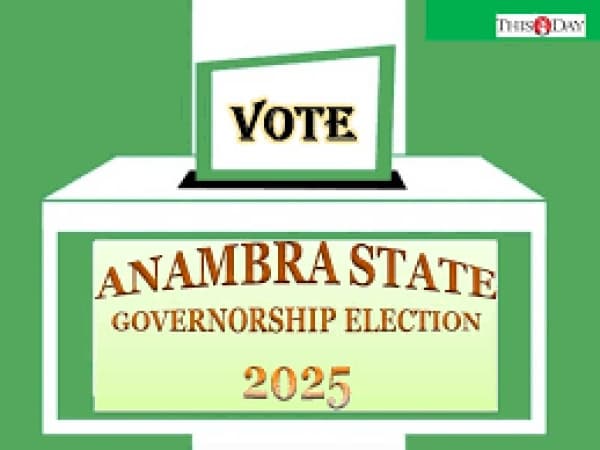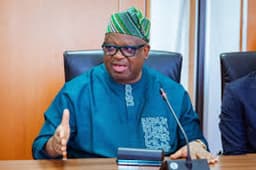
Anambra 2025 Election
Allegations of vote buying surfaced at several polling units during the Anambra governorship election, even as security agencies maintained that they were acting with neutrality and restraint.
Although officers of the Independent Corrupt Practices and Other Related Offences Commission (ICPC) were observed patrolling some centres to deter inducements and enforce electoral regulations, voters and witnesses said cash payments for votes continued — but more covertly than in past elections.
At Polling Unit 02, Amawbia Primary School, a voter who spoke on condition of anonymity said she received money after stating her preferred candidate. “The process was seamless,” she said, “but before we voted, we were asked who we wanted to vote for. It was only when our choice matched what they wanted that we were given money.”
Asked whether those who refused to vote for the preferred candidate were prevented from voting, she replied in the negative and insisted that everyone was allowed to cast their ballots.
Another voter, who gave his name only as Tochukwu, said the vote-buying this time was coded and more discreet. “Unlike previous elections that they buy votes publicly, this election is more coded. No one approaches you until it’s time to vote. After accreditation, one of those with the money will ask who you are voting and will join you to see if you actually voted for the said candidate. Only then will the money be given to you,” he said.
A police officer, speaking off the record, said that their role was to ensure the peaceful conduct of the electorate and that officers were, so far, complying with directives on conduct and neutrality.
At Polling Unit 006, the security presence was visibly strong, yet allegations persisted that party agents were paying voters who showed they had voted for particular candidates. Observers at several units across Awka, Amawfia and Abagana reported that by mid-day most voting had been completed and many voters were waiting for ballot sorting.
Many credited the Independent National Electoral Commission’s Bimodal Voter Accreditation System (BVAS) with speeding accreditation and easing the voting process. Officials and voters said the technology largely functioned as intended, helping to keep the exercise orderly.
Representatives of civil society organisations, accredited journalists and election observers were on the ground monitoring proceedings. Meanwhile, commercial activities continued in major markets and along busy streets in Awka, with traders and commuters carrying on as voting proceeded.
The Nigeria Police Force, led in the state by DIG Benjamin Okolo, said it had deployed officers across the state, concentrating on Ihiala, Ogbaru, Ayamelum and other flashpoints. According to the Police Public Relations Officer, SP Ikenga Tochukwu, operatives were strategically stationed at polling units, collation centres, waterways and border communities to deter disruption and reassure voters.
SP Tochukwu reiterated the Command’s commitment to neutrality and professionalism. “The Command assures all political actors and citizens that it remains committed to safeguarding lives and property while ensuring a transparent and credible election,” he said.
For now, pockets of alleged inducement have not resulted in open clashes, and polling continued largely without incident as security agencies sustained a visible presence and electoral officials completed accreditation and voting procedures.
Meanwhile,21-year-old first-time voter, Chinyere Aniwetalu, confessed that she was paid to vote at Nteje Ward 1, Amuda Village Square Polling Unit 12.
Chinyere, who spoke in Igbo language, confirmed receiving money but refused to disclose the amount or the identity of those who paid her.
“I was paid to vote,” she said with a smile, adding that she was, however, happy to finally exercise her civic right after years of waiting to reach voting age.
She explained that she could not participate in the 2023 general elections because she did not have a Permanent Voter’s Card (PVC) at the time.
“I just got my PVC this year, and I’m happy to use it today,” she noted.
At the polling unit, most voting activities had been concluded by midday, with several voters seen hanging around as officials prepared for the sorting and counting of ballots.
INEC officials at the centre told journalists that the voting commenced early, around 8:00 a.m., and had been smooth so far, though they were still expecting a few more voters to turn up before the close of polls.
The Incident underscores ongoing concerns about vote-buying and voter inducement, which have continued to mar Nigeria’s electoral process despite sustained campaigns by authorities and civil society groups against the practice.
Another voter, a Youth Corp member on election duty in Awka, said the election was peaceful,but that the only problem was that party agents from a particular political party, were monitoring voters to know the party they were voting for ,” as of violence, the security agencies did their jobs perfectly well, but party agents of a particular political party were monitoring voters to know who they are voting for . If you vote for their candidate, they will give stipend. This is not good, because their presence influences who to vote for, put fear in the mind of voters, while they still instil fears in others who may not want to be marked for attack after the election “. (Saturday Sun)

























.webp&w=256&q=75)

NEWS EXPRESS is Nigeria’s leading online newspaper. Published by Africa’s international award-winning journalist, Mr. Isaac Umunna, NEWS EXPRESS is Nigeria’s first truly professional online daily newspaper. It is published from Lagos, Nigeria’s economic and media hub, and has a provision for occasional special print editions. Thanks to our vast network of sources and dedicated team of professional journalists and contributors spread across Nigeria and overseas, NEWS EXPRESS has become synonymous with newsbreaks and exclusive stories from around the world.